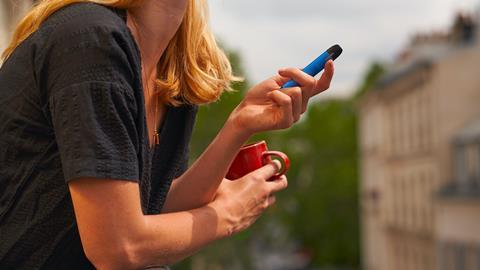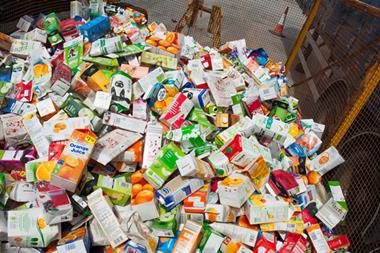Discarded cigarette butts are an environmental nightmare. According to Keep Britain Tidy research, fag ends and packets are the most prevalent form of litter in England, making up 68% of all littered items.
The butts are single-use plastic and last for years, leaching toxic chemicals into the land and water, harming plant growth and wildlife.
Reducing the prevalence of smoking is the main strategy of the government to tackle the problem. The recent Khan review ‘Making smoking obsolete’ recommends vaping as an effective quitting tool, and the promotion of it via a £15m per year national mass media campaign.
But are the butts any worse than e-cigarettes?
Perhaps not when considering single-use, pre-charged disposable vapes. A subcategory that is on fire at the moment.
Exclusive data from NielsenIQ shows disposable brand Elf Bar to be the biggest selling over-the-counter brand in the past 12 months, having shifted over 25 million more units than the year before. Its value sales have risen from just under £80k to more than £140m. Meanwhile, Vype, Logic and Cirro – which don’t offer a disposable option – saw the biggest declines of all OTC brands.
“Consumers have dropped these brands, moving into disposable options,” says NielsenIQ analyst Ryan Milburn.
A survey of current vapers by ASH found disposables are now the most used vaping product. Used by 7% of vapers in 2020, that figure rocketed to 52% in 2022. By definition, these products are throwaway. And that’s a problem.
“The growth of disposable vapes was largely unpredicted and even for those that had an inkling that it was coming, the scale and pace of the growth has been unprecedented,” says Harris Tanvir, co-founder of UKEcig Store and maker of Vyko brand disposables.
“This has meant that the majority of vape suppliers have not had the time or resource to adequately plan a sustainable approach that takes waste into consideration,” he adds.
According to a joint investigation by Material Focus and the Bureau of Investigative Journalism, more than 50% of single-use vapes get thrown away – some 1.3 million every week.
The plastic is one problem. A handful of disposable brands are tackling this, such as Vyko, which last month launched a 99% plastic-free product called Paper Bar. It’s designed “with recyclability in mind and ensures that plastic products do not end up in landfill”, Tanvir says.
In January, Riot Labs launched the “first carbon-negative” recyclable disposable to tackle the “drastic impact on the environment”.
But another issue is the ‘e’ part of e-cigarette – more specifically, the battery. Each single-use vape contains on average 0.15g of lithium – the mining of which has led to water loss, ground destabilisation, biodiversity loss, increased salinity of rivers, contaminated soil and toxic waste.
Discarded disposables mean 10 tonnes of lithium is sent to landfill each year, equivalent to the lithium in batteries inside 1,200 electric vehicles.
The sector can’t innovate its way around the need for a battery. So it’s essential to get those batteries back for recycling.
“The challenge for disposable vape manufacturers is that direct reduction of waste is not their responsibility if they are not based in the UK, and it is difficult to see improving matters as being within their gift,” says Liam Humberstone, technical director at vape retailer Totally Wicked.
“Ultimately, the group that stands to make the biggest difference in all this are consumers themselves,” he adds.
It’s a big ask. Users typically need to take apart their vapes and recycle the component parts separately.
Many vapers are taking responsibility, with help from specialist vape retailers. Several stores now offer drop-off points for spent devices. “To date we have been encouraged by customers’ uptake of the scheme, and a significant and increasing number of disposable vape users are returning products to us for responsible disposal,” says Humberstone.
Indeed, according to Material Focus, about a quarter of vapers recycle their devices in store when they buy new ones. Around a fifth make the trek to their local authority recycling centre.
But with disposable sales booming, and sales shifting increasingly to supermarkets without such schemes, it seems inevitable more of the devices will get littered or landfilled.
“It is impossible to say for certain what will happen to the sector if there isn’t an improvement in sustainability,” says Tanvir, “but it doesn’t feel too wild to suggest that additional regulation will be introduced, or possibly even a ban on disposable vape products. This would be a huge step backwards.”




















No comments yet